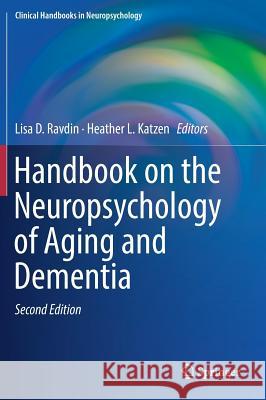Handbook on the Neuropsychology of Aging and Dementia » książka
topmenu
Handbook on the Neuropsychology of Aging and Dementia
ISBN-13: 9783319934969 / Angielski / Twarda / 2019 / 763 str.
Kategorie BISAC:
Wydawca:
Springer
Seria wydawnicza:
Język:
Angielski
ISBN-13:
9783319934969
Rok wydania:
2019
Wydanie:
2019
Ilość stron:
763
Waga:
1.54 kg
Wymiary:
25.4 x 17.78 x 4.14
Oprawa:
Twarda
Wolumenów:
01
Dodatkowe informacje:
Wydanie ilustrowane











